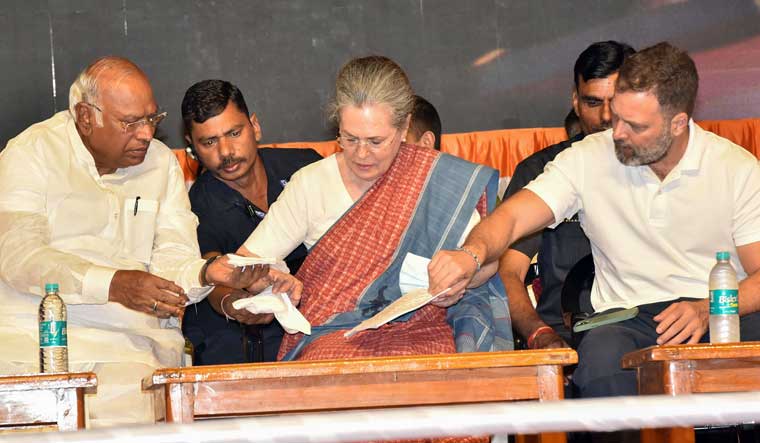At a time when national unity should be non-negotiable, the Indian National Congress and its allies are once again playing a shameful and dangerous game. Under the guise of political opposition, their narrative sounds eerily similar to Pakistan’s propaganda—a strategy so reckless, it undermines India’s global standing and demoralizes the armed forces. Mallikarjun Kharge, Congress President and Leader of the Opposition in the Rajya Sabha, has emerged as the most recent megaphone of this betrayal. Kharge’s latest allegation that Prime Minister Modi cancelled his visit to Jammu and Kashmir due to intelligence inputs about a possible terror attack. A dangerous insinuation. What exactly was Kharge suggesting? That India’s Prime Minister cowered in the face of terror threats? Or worse, that the government failed to prevent the attack despite prior knowledge? This isn’t just irresponsible rhetoric—it’s calculated disinformation, fed to the public at a time when the nation is poised to respond to Pakistan-backed terrorism with strategic resolve. Let us be clear: India has not forgotten the cowardly terror strike in Jammu and Kashmir. Nor has the Modi government brushed it under the carpet. A high-level all-party meeting, chaired by Defence Minister Rajnath Singh, was convened where even Kharge’s own representatives acknowledged the gravity of the threat and the need for united action. Yet, outside the meeting room, Congress leaders pedal conflicting narratives, undermining trust and weaponizing doubt. Here lies the absurdity: if the Opposition believes there was an intelligence lapse, then how can it also claim the Prime Minister acted on intelligence to cancel his visit? You can’t have it both ways. But intellectual consistency has never been Congress’s strength. This is the same party that questioned the veracity of the 2016 surgical strikes and the 2019 Balakot air strikes. It raised doubts, demanded proof, and sang the same tune that echoed from across the border in Pakistan.

And once again, as India prepares its response to terror, Congress appears more invested in maligning its own government than in confronting Pakistan’s terror-industrial complex. How convenient. The truth is, Pakistan is already reeling under internal implosions. The Balochistan Liberation Army has intensified its resistance, seizing control of key regions and dealing heavy blows to the Pakistan military. In the west, the Taliban shows no mercy, while Pashtun groups rise in rebellion. This is a nation that is falling apart at the seams, where internal dissent is stronger than any foreign threat. And instead of letting Pakistan implode under the weight of its own contradictions, Congress seeks to deflect attention by questioning India’s strategic patience and leadership. Even the United Nations Security Council, in a rare closed-door session held at Pakistan’s behest, refused to indulge Islamabad’s fantasies. Instead, the world’s major powers reaffirmed India’s right to respond to cross-border terror and slammed Pakistan for sheltering extremists. No statement came from Pakistan after the meeting, because they were diplomatically cornered. Yet here at home, Kharge, the Gandhis, and their assorted allies, including Muftis and Abdullahs, cry wolf, demand war, and fan confusion. They do not want India to win—they want Modi to fail. Their obsession with Modi blinds them to national interest. But Modi won’t take the bait. India’s response will come—not in the form of loud rhetoric, but precise and painful consequences for Pakistan. This isn’t 2008. This is New India, where the armed forces are backed by a government with clarity, courage, and conviction. It is high time the Congress remembers it is the principal Opposition, not a mouthpiece for the enemy. National security isn’t a political football. When the dust settles, history will remember who stood with India—and who stood in its way.




